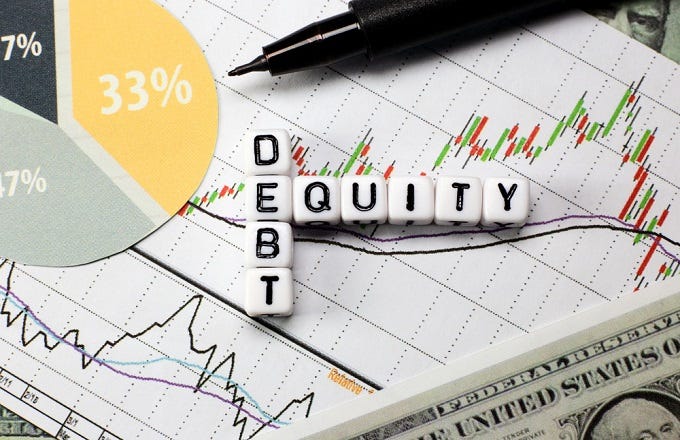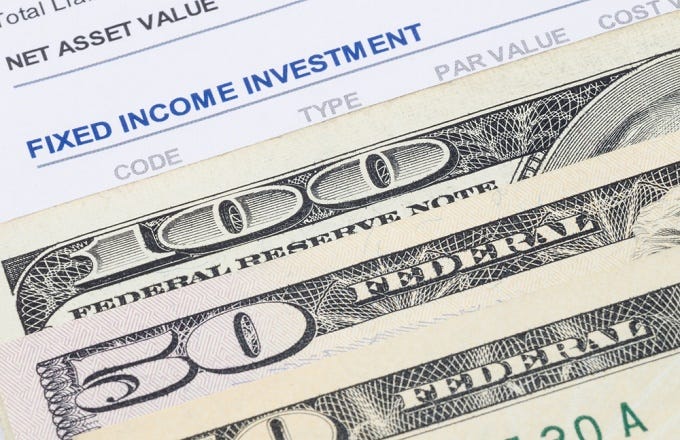5 Ways to Double Your Investment
This article was originally published on this site
There’s something about the idea of doubling one’s money on an investment that intrigues most investors. It’s a badge of honor dragged out at cocktail parties, a promise made by over-zealous advisors, and a headline that frequents the cover of some of the most popular personal finance magazines.
Perhaps it comes from deep in our investor psychology; that risk-taking part of us that loves the quick buck. Whatever the source though, it is both a realistic goal that investors should always be moving towards, as well as something that can lure many people into impulsive investing mistakes. Knowing some of the most trusted avenues to doubling your money is something that all investors should have in their toolboxes.

1. The Classic Way – Earn it Slowly
Investors who have been around for a while will remember the classic Smith Barney commercial from the 1980s, where British actor John Houseman informs viewers in his unmistakable accent that they “make money the old fashioned way – they earn it.”
Perhaps the most tested way to double your money over a reasonable amount of time is to invest in a solid, non-speculative portfolio that’s diversified between blue-chip stocks and investment grade bonds. While that portfolio won’t double in a year, it almost surely will eventually, thanks to the old rule of 72. (To learn more about the rule of 72, check out What is the ‘rule of 72’?)
Don’t Miss: This $0.39 Stock Set to Soar by April 15th
Considering that large blue-chip stocks have returned roughly 10% over the last 100 years, and investment grade bonds have returned roughly 6%, a portfolio that is divided evenly between the two should return about 8%. Dividing that expected return (8%) into 72, gives a portfolio that should double every nine years.

2. The Contrarian Way – Blood in the Streets
Just like great athletes go through slumps when many fans turn their backs, the stock prices of otherwise great companies occasionally go through slumps when fickle investors head for the hills. These instances can bring about situations where good investments become oversold, which presents a buying opportunity for brave investors who have done their homework.
Perhaps the most classic barometers used to gauge when a stock may be oversold are the price-to-earnings ratio (P/E ratio) and the book value for a company. Both of these measures have fairly well established historical norms for both the broad markets and for specific industries. When companies slip well below these historical averages for superficial or systemic reasons, smart investors will smell an opportunity to double their money. (Read Buy When There’s Blood in The Streets to learn more on contrarian investing.)

3. The Safe Way
For those investors who are afraid of wrapping their portfolios around a telephone pole, bonds may provide a significantly less precarious journey to the same destination. But investors taking less risk by using bonds don’t have to give up their dreams of one day proudly bragging around the lunchroom about doubling their money. In fact, zero-coupon bonds (including classic U.S. Savings Bonds), can keep you in the “double your money” discussion.
Don’t Miss: This $0.39 Stock Set to Soar by April 15th
One hidden benefit that many zero-coupon bondholders love is the absence of reinvestment risk. With standard coupon bonds, there’s the ongoing challenge of reinvesting the interest payments when they’re received. With zero coupon bonds, which simply “accrete” or grow towards maturity, there’s no hassle of trying to invest smaller interest rate payments or risk of falling interest rates. (Check out the Importance of Reinvestment Income and Reinvestment Risk in the section of our CFA Level 1 Study Guide to learn more about this concept.)

4. The Speculative Way
While slow and steady might work for some investors, others may find themselves falling asleep at the wheel. For these folks, the fastest ways to super-size the nest egg may be the use of options, margin or penny stocks. Stock options, such as simple puts and calls, can be used to speculate on any company’s stock going up or down, and can turbo-charge a portfolio’s performance.
For those who don’t want to learn the ins and outs of options, but do want to leverage their faith (or doubt) about a certain stock, there’s the option of buying on margin or selling a stock short.
Don’t Miss: This $0.39 Stock Set to Soar by April 15th
Lastly, extreme bargain hunting can quickly turn your pennies into dollars. Whether you decide to roll the dice on the numerous former blue-chip companies that are now selling for less than a dollar, or you sink a few thousand into the next big thing, penny stocks can double your money in a single trading day. (For further reading on using penny stocks to double your money, read our related articles The Lowdown on Penny Stocks.)

5.The Best Way
While it’s not nearly as fun as watching your favorite stock on the evening news, the undisputed heavyweight champ of doubling your money is that matching contribution you receive in your employer’s retirement plan. Making it even better is the fact that the money going into your 401(k) or other employer-sponsored retirement plan comes right off the top of what your employer reports to the IRS.
Don’t Miss: This $0.39 Stock Set to Soar by April 15th
Before you start complaining about how your employer doesn’t have a 401(k) or how your company has cut its contribution because of the economy, don’t forget that the government also “matches” some portion of the retirement contributions of taxpayers earning less than a certain amount.

Conclusion
There’s an old saying: “If something seems too good to be true, then it probably is.” That’s sage advice when it comes to doubling your money, considering that there are far more investment scams out there than sure things. While there certainly are other ways to approach doubling your money than the ones mentioned so far, always be suspicious when you’re promised results. Whether it’s your broker, your brother-in-law or a late night infomercial, take the time to make sure that people are not using your money to double their money.


